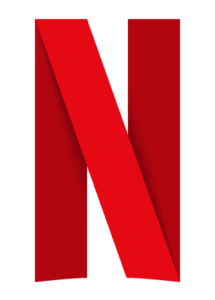Truly Disruptive Innovation Endures The Test of Time...
and has the power to shape consumer behavior, modify habits and define lifestyles.
While innovative brands gain a competitive edge by thinking outside the box, disruptive innovation is about more than improving products or services. Disruptors create solutions for people’s real-life problems and unmet needs – and it can change the trajectory of a brand category when an innovation strikes a chord with living, breathing human beings.
While the theory of ‘disruptive innovation’ was introduced in 1995 by a Harvard professor Clayton Christensen, disruptors have changed the competitive landscape throughout history. Disruptors create solutions for actual problems people really care about and make these solutions accessible and affordable.
One thing all disruptors share is their focus on people’s wants and unmet needs, and five examples of innovations that have stood the test of time are:
- Gatorade: Solved a real problem for athletes, creating a solution for heat-related illnesses.
- Netflix: Made entertainment affordable, and accessible anywhere, at anytime.
- PayPal: Influenced purchasing behavior, making it easy and safe to shop online.
- Kellogg’s: Modified a habit and defined a healthy lifestyle.
Create A Solution For A Real Problem
Creating a solution for an unmet need or real problem can change the trajectory of a brand category, like the way Gatorade changed the beverage category with the invention of the sports drink.
Before sports drinks, dehydration and heat related illnesses were a real problem for athletes. In fact, many football players often avoided drinking water during games and practices because it could cause nausea or cramps or make them feel sluggish.
All that changed in 1965 when the University of Florida’s assistant football coach, Dewayne Douglas asked kidney disease specialist Robert Cade ‘why don’t football players wee-wee during the game?”
The most insightful research begins by asking the right questions, and Cade brought together a team of UF researchers who dubbed themselves the ’Piss Prophets,’ which actually is the 17th century term for urologists.
By analyzing athletes’ sweat and urine, the researchers discovered the Gators were losing over eight quarts of body fluid during football practice. Physical exertion in the Florida heat also affected the athletes’ electrolyte levels, blood sugar and total blood volume.
Cade and his colleagues developed an electrolyte solution that hydrated the players and enhanced the football teams’ performance – but it tasted terrible. The original formula actually made some people vomit and was so corrosive it had to be stored in glass containers.
Cade’s wife made the solution palatable by adding lemon juice, and the original distributor developed a special coating for metal cans.
Report by University of Florida
Even though the distribution rights have changed hands between Stokely-Van Camp, Quaker, and now PepsiCo, the brand is trademarked, and the original inventors and University receive royalties for every gallon sold. As a result, the University of Florida also created a path to fund future innovations. In fact, their share of Gatorade Trust royalties brings researchers to the campus and supports about 140 inventions each year.
Today, the brand continues to be fueled by marketing insights from athletes and their sweat, focusing on sports performance innovations and creating the fluids, fuel, and nutrients athletes need before, during, and after a workout, practice or competition.
Make Something People Want More Accessible
Disruptive innovation often involves a startup overtaking a market leader. And that is not exactly what happened with Netflix and Blockbuster. In fact, it took Netflix six years to turn a profit – and Blockbuster actually walked away from an opportunity to buy the upstart for $50 million in 2000 according to reports by CNBC.
Netflix has remained relevant because they always listen to people’s changing wants and needs. When Reed Hastings and Marc Randolph founded their video rental service in 1997, Netflix mailed DVDs to movie buffs and fans of vintage TV shows. It was cost effective and convenient, and made entertainment more accessible to people – especially people living outside metro areas.
Their first game-changing innovation was their 1999 online subscription-based service, enabling subscribers to rent an unlimited number of DVDs for a flat monthly fee. But they still weren’t really a threat to Blockbuster, which introduced a similar membership, and the instant gratification of walking out the door with entertainment.
Netflix continued to innovate and introduced crowdsourcing — involving their customers in contests to discover how to continuously improve. According to reports by TheStreet, the big tipping points were in 2007 when Netflix introduced streaming over the internet, and in 2013, when they started producing original Netflix series, like “House of Cards” and “Orange is the New Black.”
Then the global pandemic lockdown hit in 2020, and streaming went mainstream, changing people’s viewing habits and expectations for entertainment. Fast forward to 2023, and streaming has forever redefined the home entertainment category by making entertainment accessible virtually anywhere and anytime.
In fact, the way people stream content has disrupted cable TV, linear television – and the advertising industry according to Ad Age. As Netflix and other streaming services introduce paid ads, they are transforming the marketing mix and brand positioning. New brand placement opportunities and ad formats are in their infancy, and new concepts are constantly being tested to evaluate their effectiveness.
Influence Consumer Behavior
There’s no question innovation during the fourth industrial revolution has completely changed consumer behavior. No list of disruptors would be complete without a nod to Bill Gates and Steve Jobs who have helped make technology accessible to the world, and the role of Jeff Bezos taking e-commerce mainstream.
But one invention often goes unmentioned, even though it changed consumer behavior. The invention of a one-click payment system by Peter Thiel, Max Levchin, Luke Nosek and Ken Howery proved to be a game changer for online shoppers, small businesses and online merchants.
According to a report by The Street, the team founded Confinity in 1998, a company designed to work on security software for the Palm Pilot. While Palm Pilots fizzled, the team changed purchasing behavior forever with the invention of email-based payment technology and the digital wallet, which they renamed PayPal in 2000.

In fact, PayPal’s founders and earliest employees are considered the technology industry’s most powerful network according to the best seller, The Founders. Since leaving PayPal, employees have formed, funded, and advised many of the most disruptive innovations in history, including Tesla, Facebook, YouTube, SpaceX, Yelp, Palantir, and LinkedIn, among many others.
Modify A Habit and Define A Lifestyle
The debate over the sugar content in breakfast cereals, direct-to-consumer sales, and prizes in cereal boxes all began at Kellogg’s, over a century ago, when John Harvey Kellogg and his brother Will Keith (W.K.) began mass marketing wellness products that defined a healthy lifestyle.
When the brothers developed corn flakes cereal in 1894, cold breakfast cereal wasn’t a thing. Most people started their days noshing on leftovers from dinner or warm porridge. And while mass marketing breakfast cereal would eventually change people’s eating habits – that isn’t the habit John was actually trying to modify.
John was a physician and W.K. was the bookkeeper at the sanitarium and health spa they operated together in Battle Creek, Michigan. According to many reputable sources, including Forbes, John believed sugary and spicy foods could arouse people, and the devout Seventh Day Adventist was trying to develop a diet that would prevent indigestion and dampen his patients’ sex drive.
The debate over the sugar content of corn flakes drove a wedge between the Kellogg brothers.
Report by CNN
W.K. went on to win the rights to the Corn Flake’s patent, developed a sweeter version of the cereal, and introduced the concept of mass food processing.
Sugar content has actually given a case of indigestion to the entire ready-to-eat breakfast category, and has been the impetus behind new nutrition standards, labeling requirements and legislation in the European Union. In fact, cold cereal consumption has been on the decline for nearly three decades, but Corn Flakes remain a popular pantry staple. The naturally gluten-free cereal and the brand’s association with the wellness mega-trend have enabled the Kellogg Company to weather the storm.
According to a report by Forbes, most brands in the cold cereal category offer way too many choices, and have lost sight of consumers’ changing lifestyles, new dietary behaviors and the growing demand for gluten free products. However, Adweek reports that a new batch of healthier cereal brands are winning back a seat at the breakfast table. Brands like Magic Spoon, Surreal, Crispy Fantasy and Brave are resurrecting the category with better-for-you versions of nostalgic and whimsical cold breakfast cereals.
How To Gain A Deeper Understanding of Consumers’ Unmet Needs
Market research can be a catalyst for disruptive innovation. A combination of quantitative and qualitative market research is the best way to discover people’s unmet needs, and gain a deeper understanding of the values, needs, interests and feelings influencing consumer behavior and habits.
Ready To Innovate?
Get in touch with our team of market researchers and behavioral experts to learn more about Insights in Marketing, and sign up to be the first to see our insightful case studies, infographics, and blogs!
Sign Up
"*" indicates required fields
Share this article:
Related Resources
CPG in 2025: The Flavorful, Functional & Fan-Driven Future of Consumer Goods
The Consumer Packaged Goods (CPG) industry is undergoing a massive transformation, shaped by evolving consumer…
Sip, Sip, Hooray!
Sip, Sip, Hooray! The RTD Cocktail Craze and the Mocktail MovementThere’s something special about a perfectly…
From Idea to Icon: The Life Cycle of a Super Bowl Ad
From Idea to Icon: The Life Cycle of a Super Bowl AdA…
Seizing Business Opportunities in the GLP Era
While GLP medications disrupt traditional health and wellness models, they also present unique opportunities for…



